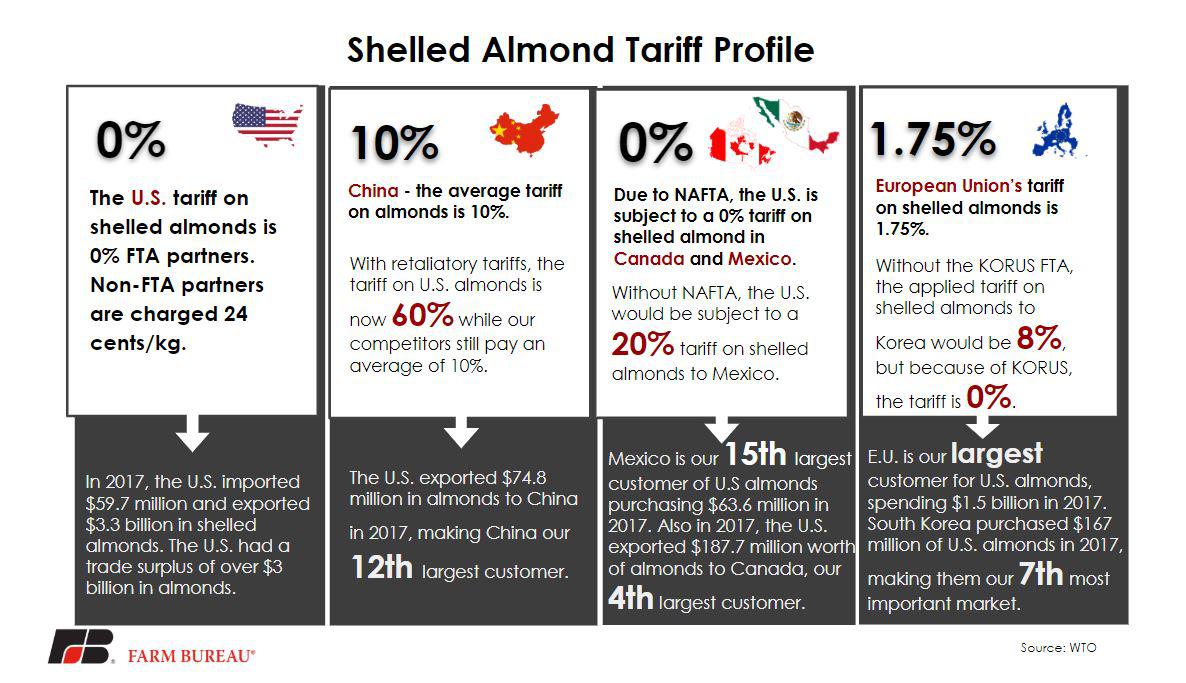Shelled Almond Tariff Profile
TOPICS
Commodity Tariff ProfileMegan Nelson
Economic Analyst
Megan Nelson
Economic Analyst
Our Market Intel series on commodity-specific tariff profiles continues with almonds.
In 2017, the U.S. maintained a trade surplus of over $3 billion in shelled almonds. This surplus is sustained by exporting $3.3 billion in shelled almonds and importing only $59.7 million in 2017. The U.S. produces 80 percent of the world’s shelled almonds and exports 88 percent of the world’s shelled almonds. For all free trade agreement partners, the U.S. tariff on shelled almonds is 0 percent. For non-FTA partners, the U.S. tariff is 24 cents per kilogram.
The European Union imports 41 percent of the world’s shelled almonds and is our largest customer, purchasing $1.5 billion worth of U.S. shelled almonds in 2017. The EU charges a 1.75 percent tariff on their large market share of shelled almonds.
Our seventh-largest customer, South Korea, purchased $167 million worth of U.S. shelled almonds in 2017. Due to the U.S.-Korea Free Trade Agreement, U.S. shelled almonds are charged a 0 percent tariff, as opposed to our competitors, which are charged an 8 percent tariff.
The North American Free Trade Agreement guarantees that U.S. shelled almond exporters are charged a 0 percent tariff on almonds into Mexico and Canada. Canada is our fourth-largest customer, purchasing $187.7 million worth of U.S. shelled almonds in 2017. Mexico is the 15th-largest consumer of U.S. shelled almonds, purchasing $63.6 million in 2017. Without NAFTA, the U.S. would be subject to a 20 percent tariff on shelled almonds to Mexico.
The second-largest global importer of shelled almonds, China, purchased $74.8 million worth of U.S. shelled almonds in 2017. The tariff charged on U.S. shelled almonds is an average of 10 percent. However, with retaliatory tariffs in place, the current tariff on U.S. almonds is 60 percent, while our competitors are still charged 10 percent.
To read more in the series check out our deep-dive into soybean, wheat, corn, pork, cotton and beef tariffs.

Trending Topics
VIEW ALL